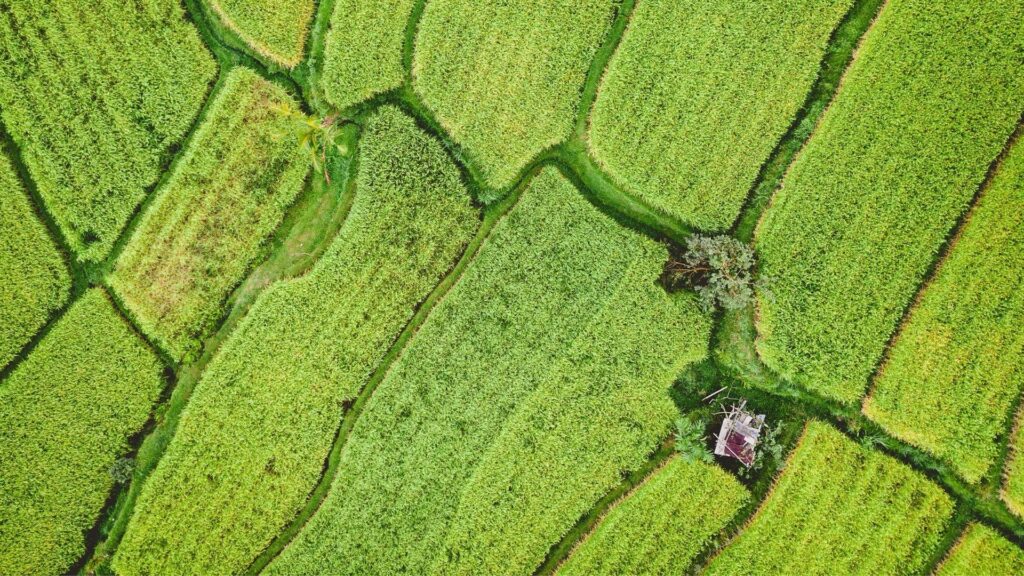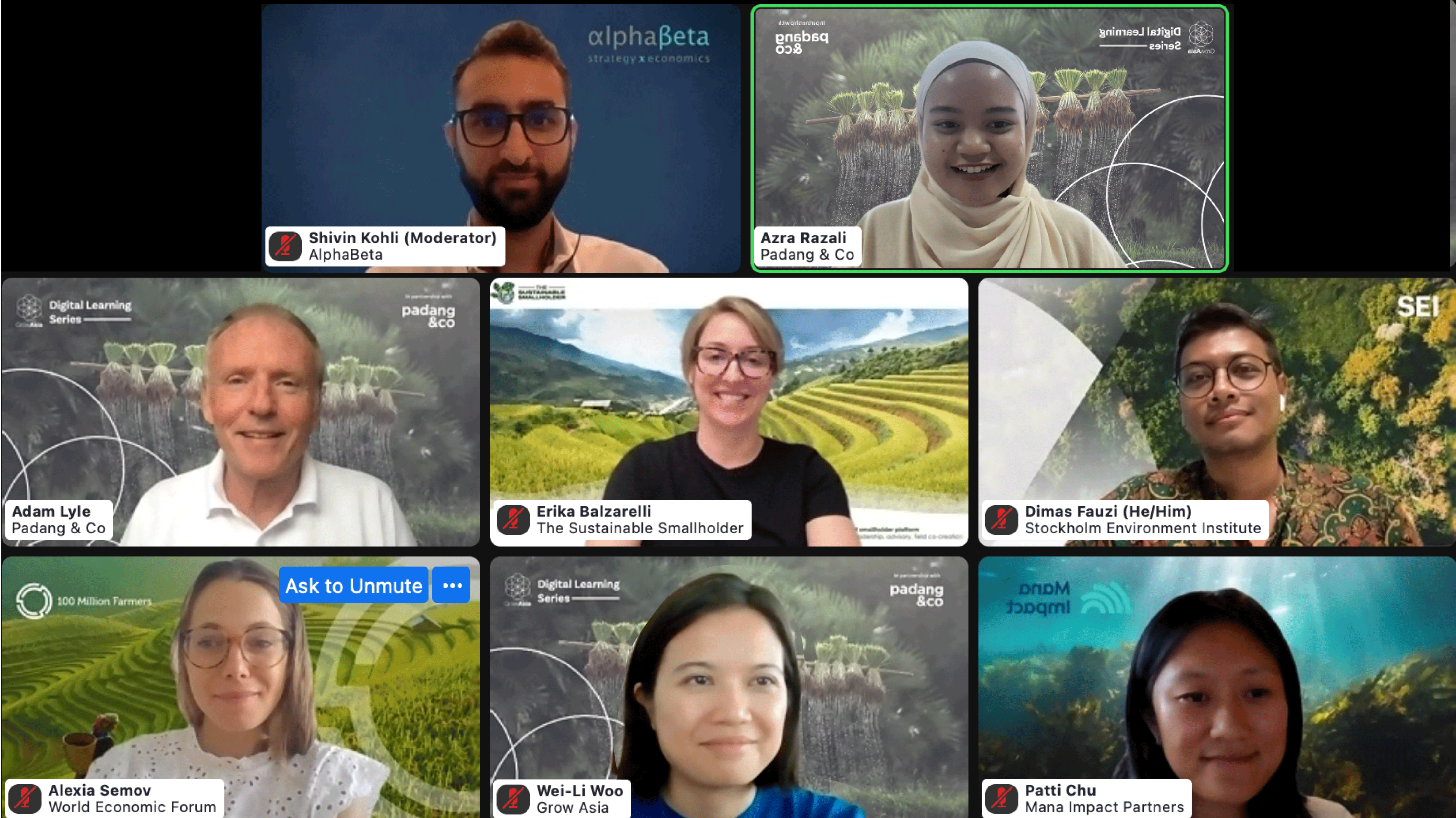

On Tuesday, July 26, 2022, Grow Asia and Padang & Co hosted the second webinar of their Digital Learning series for 2022, on climate-smart agriculture, regenerative agriculture, and nature-based solutions. The aim of the webinar was to contextualise different regional experiences in order to tease out implications for Southeast Asia on these critical elements of agri-food sustainable transitions, to develop a roadmap for action. The online event was attended by over 100 practitioners in the agri-food space in Southeast Asia and Europe, including representation from academia, private sector, government, civil society organisations (CSOs), investors, donor agencies, and consulting and research agencies.
The event began with a presentation by Ms. Alexia Semov, Community Lead for Food and Nature at the World Economic Forum, on the recently published report, Transforming Food Systems with Farmers: A Pathway for the EU. This report was written as part of the broader effort of the 100 Million Farmers’ EU Carbon+ Farming Coalition. Its main finding is that the majority of EU farmer base faced five common challenges in scaling climate-smart agricultural solutions: challenging farm economics, lack of awareness, uneven technology adoption, and fragmentation of policies at the national level. These resonate with challenges observed in Southeast Asia but could require different redressal mechanisms.
This was followed by an hour-long panel discussion, moderated by Shivin Kohli, Senior Manager at AlphaBeta. Speakers included:
- Dimas Fauzi, Research Associate at the Stockholm Environment Institute
- Erika Balzarelli, Founder of The Sustainable Smallholder
- Patricia Chu, Managing Director at Mana Impact Partners
- Alexia Semov, Community Lead, Food and Nature at the World Economic Forum


The discussion explored different aspects of climate-smart agriculture, including clarifying key concepts, discussing the importance of innovation and finance for these solutions from a Southeast Asia perspective, and underscoring the need to build greater resilience in food systems despite prevailing economic conditions. The main takeaways were:
- Many definitions, one objective: Climate-smart agriculture, agro-ecology, regenerative agriculture, and nature-based solutions vary in their definition and use, but are all essentially different aspects of nature-positive agriculture, which seeks to make positive contributions to natural capital through primary agricultural production methods as opposed to traditional nature-negative methods
- Involving the smallholder is critical to scaling solutions: Climate-smart agriculture has the potential to increase smallholder productivity and profitability, and there are use cases already active across countries in Southeast Asia and commodities (e.g., coffee, coconut). The single common success factor in these ventures is involving the smallholder through the design, financing, and implementation of these solutions.
- Unlocking capital requires solving a few key challenges: While impact investors are interested in funding these solutions, there remain a few barriers to unlocking sufficient public and private capital to accelerate the adoption of climate-smart agricultural techniques. These include de-risking their novel revenue models, addressing challenges in monitoring and reporting, and reducing the current “premium” associated with produced commodities through a combination of policy and market measures.
- Biodiversity and climate risks are long-term in nature: Although many short-term economic crises are disrupting food supply chains and commodity dynamics, including uneven recovery from the pandemic and the conflict in Ukraine, biodiversity and climate risks are inherently longer-term in nature and require swift redressal today. For instance, as much as 50% of GDP globally is at risk of disruption from biodiversity loss, with agriculture being the sector facing the greatest disruption. Building a sustainable food system is therefore not only critical to address these long-term risks but will also introduce greater resilience to short-term disruptions.
Click the below to access Grow Asia’s Digital Learning Series library, to which the video of this session will be uploaded soon. If you are interested in working with us on this topic, please reach out to Shivin Kohli for more.
